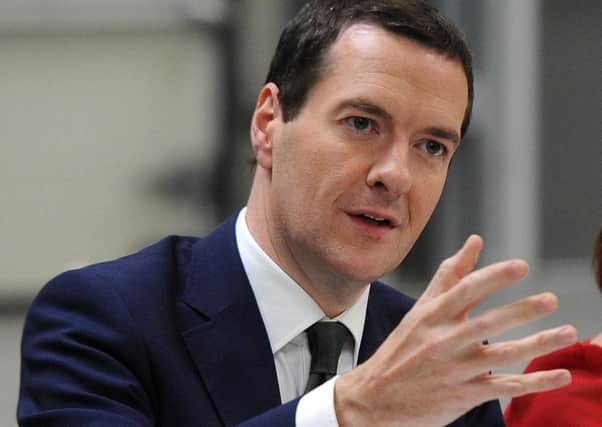Analysis: Is there an argument for signing up to an underwhelming devolution deal?


The question at the heart of proposed devolution deals for parts of Yorkshire has been this: Is the promise of money and powers on offer worth accepting the creation of elected metro mayors?
For a mixture of reasons most of the region’s council leaders do not want to see the creation of powerful cross-border metro-mayors and during the Coalition years were able to resist with the help of Liberal Democrat insistence that they were not imposed.
Advertisement
Hide AdAdvertisement
Hide AdHowever, since last year’s Conservative election victory, Chancellor George Osborne has made clear the equation is simple - no mayor / no deal.
South Yorkshire authorities agreed a draft deal last year which - assuming Sheffield City Council’s concerns about the detail can be assuaged - will see a mayor elected next year. But West, North and East Yorkshire have yet to reach agreement with the Government.
The clock is ticking on the process with the widely held view that the Chancellor wants matters wrapped up before the Budget next month. The prospect of local elections and the EU referendum in the spring are thought likely to delay further talks should agreement not be reached.
There are some who go further and think that regardless of other distractions, post-Budget George Osborne may decide to leave Yorkshire to stew for a while as he pushes ahead on his northern powerhouse plans with all the other parts of the north and midlands which have struck agreements.
Advertisement
Hide AdAdvertisement
Hide AdAnd it is that final concern that is, in part, driving a thought voiced privately by some connected to the discussions over a possible West Yorkshire - or Leeds City Region - deal which is this: Is there a case for doing a deal which includes a mayor even if the terms aren’t that great?
Those who put forward this view argue that reaching agreement is not just about the nuts and bolts of what powers the mayor would have and the money they could spend but also ensuring the region has, as some put it, “a seat at the top table” or “skin in the game”.
In other words, devolution deals should be seen as opening the door to a longer term conversation with the Government about the area’s ambitions and how they are achieved. Stubbornly refusing to sign a less than perfect deal, according to this analysis, would see West Yorkshire condemned to second-class status in its dealings with Whitehall.
Adding weight to this view is the current state of Labour in Westminster which raises the likelihood that Yorkshire leaders could be dealing with Conservative ministers for the next decade.
Advertisement
Hide AdAdvertisement
Hide AdTo be clear, the strength of the deal on the table and whether agreement can be reached on the geographic boundaries remain the main talking points and, indeed, stumbling blocks.
But some involved in the discussions in the coming days and weeks will also be driven by a fear of being left behind.